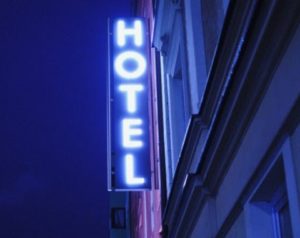 With traveling on the rise again, experts warn about the risks public Wi-Fi in hotels may pose. As 51% of Australians choose to travel domestically, this puts the data of a lot of travelers in danger.
With traveling on the rise again, experts warn about the risks public Wi-Fi in hotels may pose. As 51% of Australians choose to travel domestically, this puts the data of a lot of travelers in danger.
“As noticed by the FBI, hackers often use hotel Wi-Fi to attack guests during their stay. This is especially important now that travelers are keen to see more familiar places or find hidden gems in the distance of a car ride and stay in the local hotels, which often have poorly secured networks,” NordVPN’s digital privacy expert Daniel Markuson explains.
How can hotel Wi-Fi be hacked?
Hackers can connect to hotel Wi-Fi as easily as guests do, snoop on users’ online activity and steal their passwords and personal information. They can also install malware on a user’s computer or hack into the hotel’s database and download the guests’ credit card information.
Another threat is hackers positioning themselves as a Wi-Fi hotspot — the so-called evil twin Wi-Fi. In this scenario, cybercriminals set up fake unprotected Wi-Fi hotspots next to the hotel to trick hotel guests into connecting. The network of this kind usually has an unsuspicious name such as “Guest Wi-Fi” or “Free Hotel Wi-Fi”. When a victim connects to such a hotspot, all their personal information is sent to the hacker.
“Hotel networks are often built for the guests’ convenience, ignoring security practices. This is especially common in smaller hotels, where simple and easy-to-remember passwords are created in favor of the guests. To be in control of their own data, travelers have to be aware of the possible risks and perform some actions for their security,” Daniel Markuson from NordVPN emphasizes.
How can guests stay protected?
Daniel Markuson recommends using mobile data while away from home instead of hotel or any other public Wi-Fi. However, if this is impossible, here are some things travelers can do stay protected:
- Connect to secured Wi-Fi. Ask the person at the reception desk to give you the exact name and password of the hotel you are staying in. That way, you will avoid connecting to an “evil twin” network.
- Disable automatic connections. This will prevent you from connecting to the network you didn’t intend to connect to.
- Don’t make any purchases or reservations using hotel Wi-Fi. Guests like to make reservations for
 attractions in the town or city they are visiting using hotel Wi-Fi. This is quite convenient but also makes our sensitive information vulnerable. The best way to keep your credentials (passwords, credit card details, etc.) safe is to enter them only on a secure network.
attractions in the town or city they are visiting using hotel Wi-Fi. This is quite convenient but also makes our sensitive information vulnerable. The best way to keep your credentials (passwords, credit card details, etc.) safe is to enter them only on a secure network. - Enable your firewall. While a firewall is not that necessary over a secure connection, it is always a good idea to enable it while using public Wi-Fi. This will provide substantial security from hackers.
- Use a VPN. As International VPN Day (August 19) is approaching, it is important to remember that the best and most effective way to ensure any user’s security over an open Wi-Fi connection is by using a VPN service. It encrypts users’ data and doesn’t allow third parties to intercept it. So, if you are staying in a hotel for your holiday trip, make sure you have a VPN installed on your device.



















